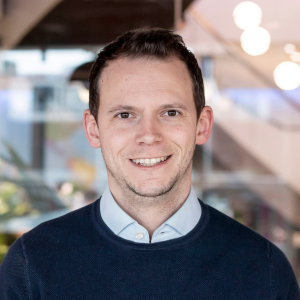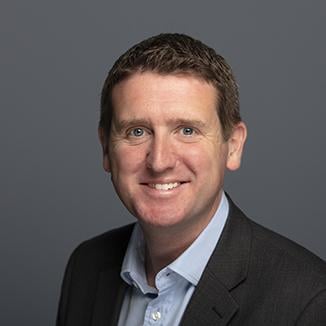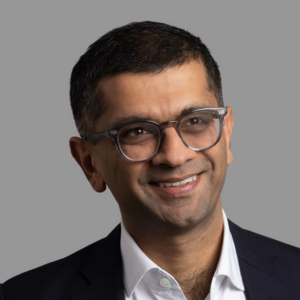
What will increasing automation mean for civil service leaders of the future?
6 June 2024
In our first Government podcast, Matt Jones is joined by Alex Thomas from the Institute for Government and Jeegar Kakkad from the Tony Blair Institute for Global Change to explore the following critical questions on the use of technology in the future of public service delivery:
- will we see more automation in Government?
- what would an increase in automation mean for the people who work on operating our public services
- what should a public service leader be thinking about as they’re bringing AI into their organisation?
- what are the risks?
Listen to our podcast:
Spotify, Amazon music and Deezer.
View a transcript of this podcast here
About our host:

Matt Jones, Partner and expert in Government and Public Sector at Baringa
Matt Jones is a partner in Baringa’s government team, focused on productivity and efficiency improvements. When Baringa launched its government practice, Matt refocused to apply his operational process and people transformation skills to the civil service. He’d found his niche and loves the variety moving between the likes of the Metropolitan Police, the Cabinet Office and HMRC: their mandates, culture and challenges are so wide-ranging. His proudest moment to date was driving change within the Land Registry.
About our guests:

Alex Thomas, Programme Director at the Institute for Government
Alex leads the Institute’s work on the civil service and policy making. He heads the team researching civil service reform, government accountability, better policy making and looking at the effectiveness of government departments. Alex is a regular commentator on radio, television and in the print media. Alex joined the IfG in January 2020, having previously been a director in the Department for Environment, Food and Rural Affairs (Defra), leading teams working on Brexit and animal and plant health. Before that, Alex was principal private secretary to Sir Jeremy Heywood, cabinet secretary and head of the civil service. Alex worked in the Department of Health from 2015–16, the Cabinet Office on constitutional and electoral matters from 2010–15, and in Defra from 2003–10 on a variety of environment, climate change and agricultural policies.

Jeegar Kakkad, Director of Government Innovation at the Tony Blair Institute for Global Change
Jeegar is an expert in progressive policy, with an emphasis on industrial strategy, financial-market reform and innovation. His work focuses on helping governments to deliver growth and transform public services.
Related Insights

Baringa Matrix of Health Productivity
Discover our recommendations for both long term opportunities and quick wins that NHS leaders should consider.
Read more
A productive conversation about productivity – what’s next for the NHS?
Discover what could be done to address the NHS productivity puzzle.
Read more
How can the new Government ensure value for money?
Discover the four ways the Treasury could drive better value for money outcomes.
Read more
Five AI pitfalls that governments must avoid to unlock productivity benefits
Discover the five key mistakes organisations make when using AI – and how Government Departments can avoid them.
Read moreRelated Client Stories

Improving data preparation and collection for better State Government decisions
How do you collect and translate inconsistent data from disparate systems to better inform and evaluate the impact of spend policies?
Read more
Putting a social outcomes lens over an IT RFP for an Australian government agency
How do you change how vendors see their systems, so responses align with agency outcomes and non-functional requirements?
Read more
Ensuring climate compliance and lasting impact for government agencies
How do government agencies navigate climate regulations today and future-proof for tomorrow?
Read more
Delivering NHS England’s most complex non-clinical technology procurement ever
Supporting NHS England build the data backbone that will unlock better health services and care for people in England for years to come.
Read moreIs digital and AI delivering what your business needs?
Digital and AI can solve your toughest challenges and elevate your business performance. But success isn’t always straightforward. Where can you unlock opportunity? And what does it take to set the foundation for lasting success?